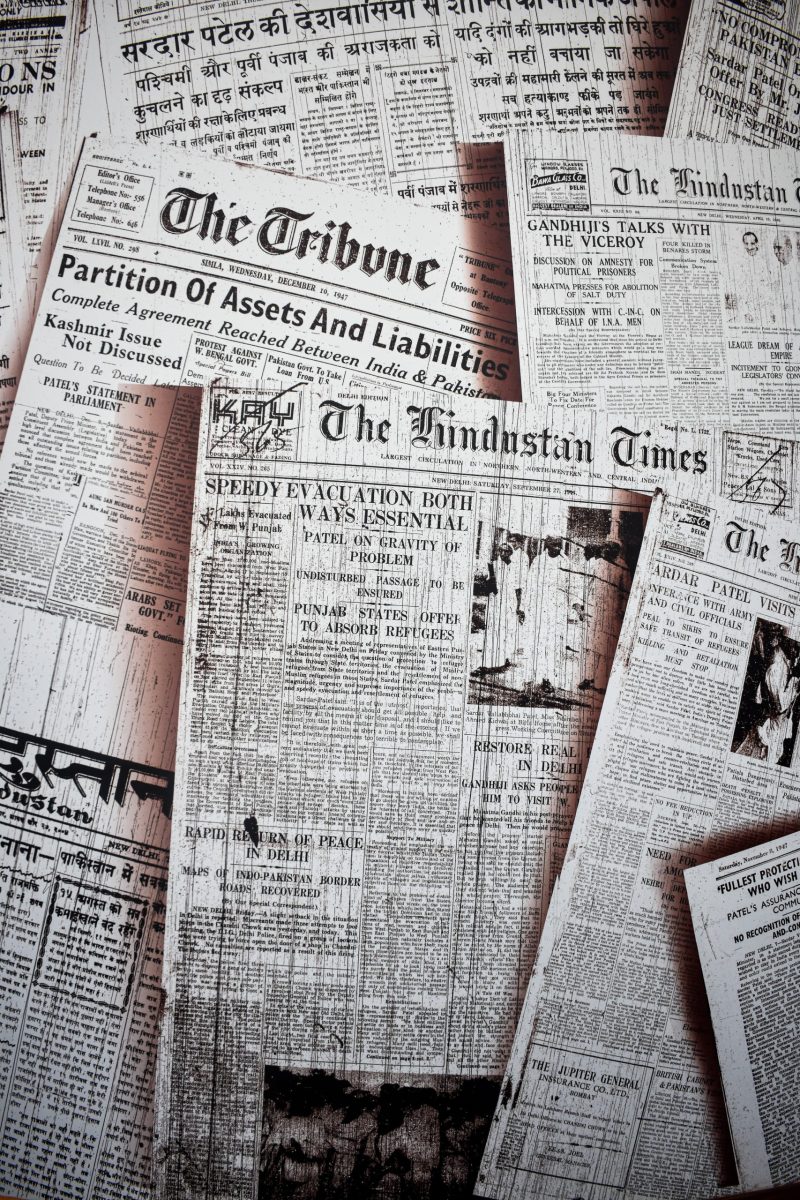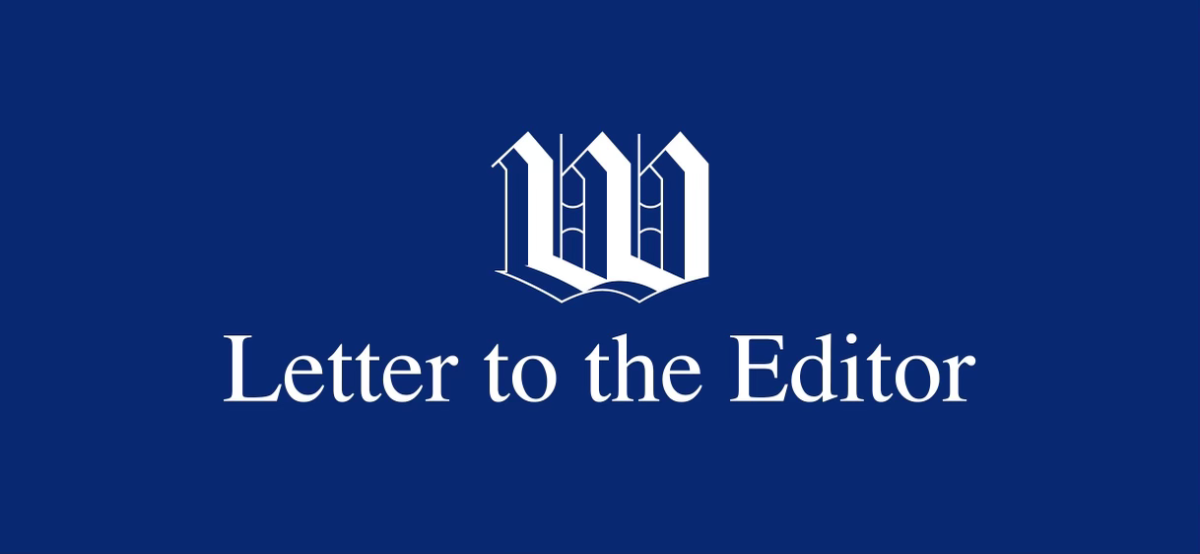The past several weeks have been critical and informative for the entire world. Regardless of what your position is on the genocide that is currently taking place in Gaza, it goes without saying that every being and entity — from students to governmental bodies — has been outed for their true ethical and political leanings.
This polarizing and dynamic time has certainly yielded inquiries about free speech and free press. While many Wellesley students are disappointed to see the bias of certain Western mainstream media outlets — such as “The New York Times” and “The Washington Post,” which unfortunately have employed Zionist-leaning rhetoric in their coverage of recent and historical events — we have this student-run newspaper, “The Wellesley News,” that provides localized coverage of news and opinions from across the student body.
Despite the fact that “The Wellesley News” Editorial Board has an established position regarding Palestine-Israel, such leanings have neither biased the news articles nor inhibited editors from publishing opinion articles that contradict their perspective. Such actions are the journalistic duty of a newspaper — to publish all available opinions and allow its readers to settle on a position. This applies to all forms of media coverage, but is especially crucial on a college campus — an environment that breeds critical thinking, discourse, and debate. Journalism and diversity of opinion cannot be sacrificed for fear of your readership’s reaction — or anything else, for that matter. College campuses are grounds for ideological diversity, not an ideological vacuum, and Wellesley is no exception.
Unfortunately, some university and college newspapers across the country have opted to shirk their journalistic duty and cower from publishing certain perspectives. An example of this is Stanford University’s student-run newspaper, “The Stanford Daily,” which claims to “[be] committed to publishing a diversity of op-eds and letters to the editor.”
Stanford University has been the source of many headlines lately, with pro-Palestinian students conducting a sit-in with tents and posters since Oct. 7. The school also made headlines in November when a Syrian student wearing a shirt that said “Damascus” was hit by a car whilst the driver yelled, “f— you and your people!” In a defamation campaign, the student was then called a “pathological liar” by both Stanford Genetics professor Judith Frydman and reported to be one by “The Stanford Review,” the university’s conservative independent publication.
Regardless of a newspaper’s ideological or political leanings, any publication that propagates information has a responsibility to ethically conduct itself. A newspaper should be a source of knowledge production, not ideological conformity. Yet “The Stanford Daily” has published double the amount of pro-Israel opinion articles than pro-Palestine ones. “The Stanford Review”, meanwhile, grossly compiled a collection of anonymous Fizz posts accusing the hit-and-run victim of dishonesty. Random posts from Fizz that accuse the victim of being a “pathological liar” — substantiated with nothing but anonymous stories and petty insults — are not sound evidence for invalidating a physical assault that left the victim bruised and hospitalized.
What’s more egregious is that both publications are guilty of intellectual dishonesty by avoiding publishing one Muslim student’s opinion piece. Hamza El Boudali is the former president of Stanford’s MSU (Muslim Student Union) and the former vice president of Stanford’s Arab Student Association. He is a graduate student currently completing his master’s in computer science, and has attended Stanford for six years. He was also listed as the author for Stanford SJP’s (Students For Justice in Palestine) statement shortly after Oct. 7. Aside from his perspective as an Arab Muslim upperclassman who has been active and close to the recent events on campus regarding Palestine-Israel, he is the only Muslim or Arab student who was willing to write anything about this topic, as pro-Palestinian Stanford students fear doxxing and other repercussions from publishing articles, and the Daily has a strict no-anonymity policy. The opinion piece he wrote regarding Palestine-Israel was put-off for weeks by “The Stanford Daily,” who had agreed to publish it.
El Boudali reports that after weeks of editing, meetings and submitting to concessions on his writing, he was finally told it was ready for publishing, only to be informed at the last minute that the Daily’s editors had decided not to publish the piece. He also notes that they were often unresponsive, and it took the urging of Muslim and Arab students sending them emails to get them to interact with the single op-ed offered by a Muslim student. Finally, on Friday, Dec. 8, the Daily published his piece, yet they added significant edits without his approval or consent (amending “genocide” into “potential genocide,” for example, which was later corrected at his behest). In the two months it took them to publish his piece, they published several pro-Israel articles (written by students) berating pro-Palestinian students and their positions. The Daily was not only more critical of the writing of the pro-Palestine piece, they also tried to sanitize this pro-Palestinian student’s voice, policing his writing. The editors wanted him to upend the entire premise of his piece, thus mitigating its impact, and got caught up in minutiae — such as changing a reference to Malcolm X, who is quoted at the end of the article, as “the legendary Malcom X.” The sentence was altered to “the great Malcolm X.”
Similarly, “The Stanford Review” has exactly zero pro-Palestine pieces in their publication, despite claiming to value free speech. El Boudali reports he submitted his piece to them as well, but that the editor-in-chief and other staff members were unprofessionally unresponsive. This student even wrote another piece catering to the Review, titled “Why Conservatives Should be Pro-Palestine,” but the Review remained staunch in their refusal to publish a pro-Palestinian voice.
Other college newspapers, such as the “Yale Daily News,” have been pressured to issue or retract comments made. For example, the “Yale Daily News” published corrections to an opinion piece titled, “Is Yalies4Palestine a Hate Group?” The corrections were regarding the accuracy of certain claims made in the article. The “Yale Daily News” was pressured to retract the corrections, as they were supposedly inaccurate — even though the point of contention was, in fact, an area of ambiguity. Objective, factual journalism cannot be sacrificed for the sake of appeasing certain readers.
Times of disagreement are integral in revealing the true journalists from the fake — the government stenographers from the writers dedicated to truth. Newspapers — especially nowadays — will be forever preserved, their publications forever in the historical record. What side of history do student journalists want to be on?






